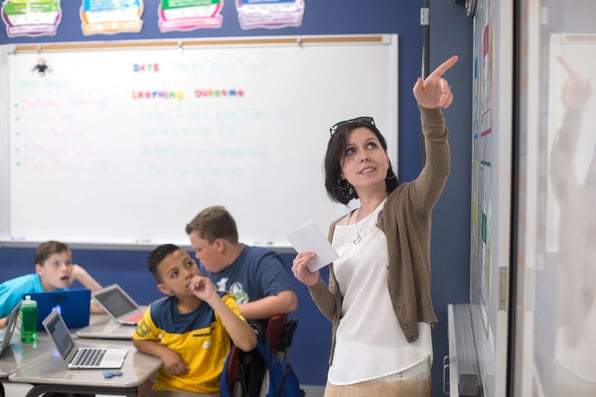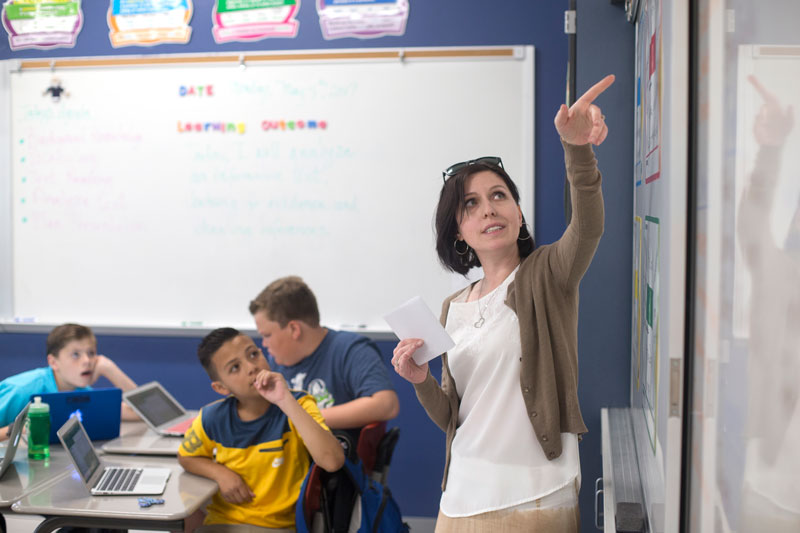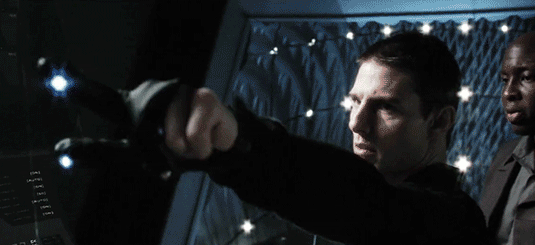
Transform Your School with Google’s Approach to Decision-Making
Make change happen at scale – and rapidly – by focusing on “actuals” instead of conjectures.

Stop Talking. Start Doing.
In the world of startups, and in the world of schools, one thing holds true: time is in short supply.
We’re in a rush to make impact, to meet deadlines, to prepare for end-of-year assessments and overcome challenges that might arise. In what feels like a moment, half the year has gone by.
So with our limited free time and endless to-do lists, we must stop talking, and start doing. Or as entrepreneur lingo would say it, “Throw out conjectures, and focus on the actuals.”
What Google Did
When Google started talking about how to build a headset display, the team with the vision for such a product didn’t devote countless meetings to arguing over what this would look like, or how it would function.
They started building it in day one.
In that first day, the team came away with some solid actual learnings. For instance, ever seen how Tom Cruise moves a screen around with his hands in Minority Report?

Well, the Google team tried that idea. And as it turns out, the experience of it is quite awkward. There’s a social discomfort to it.
So by testing the rough idea immediately, the Google team was able to immediately learn that one aspect of the screen display – and indeed, an aspect that seemed amazing on TV – wouldn’t transcend to the real world.
Now imagine if Google devoted months to researching, analyzing, talking about, and building out the idea for a moveable, virtual screen, only to find that in reality… that experience doesn’t hit home.
Conjectures are just assumptions of what may work or what may fail. Actuals are proof.
Take the Guesswork Out of Decision-Making
It’s easy to conjecture. When we conjecture, we think of what might happen. Perhaps we anticipate pitfalls or imagine great success. Regardless, we’re making assumptions. We don’t really know.
Actuals are what we know. Actuals are direct takeaways from the experience of the proposed idea.
At team meetings, we’re particularly prone to conjectures. Someone will throw out an idea, you’ll make a guess on it, someone else will offer an opinion on it, and so on. Maybe your team’s conjectures will line up and maybe they won’t. At the end of the day, it’s all just time spent on guesswork. Even if opinions sound smart, even if they come from a superior...they could never be as informed as an actual experience.
Imagine you’d like to implement a new technology calendar or update a homework policy. Inevitably, there will be many factors that come into play here, and your idea might receive bountiful pushback.
In such cases, you don’t have to stick to one narrow implementation of a policy for the entire school year. Once you’ve gathered actuals, use the direct experiences and feedback to iterate. Make the implementations better, or pivot, or embrace a new strategy. But don’t commit to an idea simply because you committed 10 meetings to it beforehand.
Embrace a Culture of Learning to Make “Actuals > Conjectures” Work
To successfully implement Google’s rapid decision-making process at your school, you must first support the gathering of actuals.
Keep in mind: some ideas won’t work out as planned. In my time at ThinkCERCA, I’ve proposed ideas that have flopped fabulously upon testing. But with a culture of learning, we’re able to rapidly spot problem areas and account for them – whereas if I was afraid to “fail” in front of my colleagues, we’d surely be stuck conjecturing in the long term, or trying to make something work simply because we committed to it long ago.
Therefore, you must model the culture of learning by embracing it yourself. Stop conjecturing, and start gathering actuals. Share out what worked, what didn’t work, and what you learned from the direct experience. Then, use your actuals to make improvements to any idea, process, or product you hope to implement.
Just as you support students in learning from their mistakes with classwork, you must support your team in learning from actuals instead of guesswork. With such limited time to make things happen, we can make quicker and better-informed decisions by throwing out the meeting and embracing the experience.
Continue your learning with the administrator guide to personalizing literacy across a school or district:


Mallory Busch is ThinkCERCA's Editor of Content Strategy. A graduate of Northwestern University, Mallory came to ThinkCERCA from stops in audience strategy at TIME magazine and news applications development at Chicago Tribune and The Texas Tribune. She holds degrees in Journalism and International Studies, and was a student fellow at Knight Lab in college.
